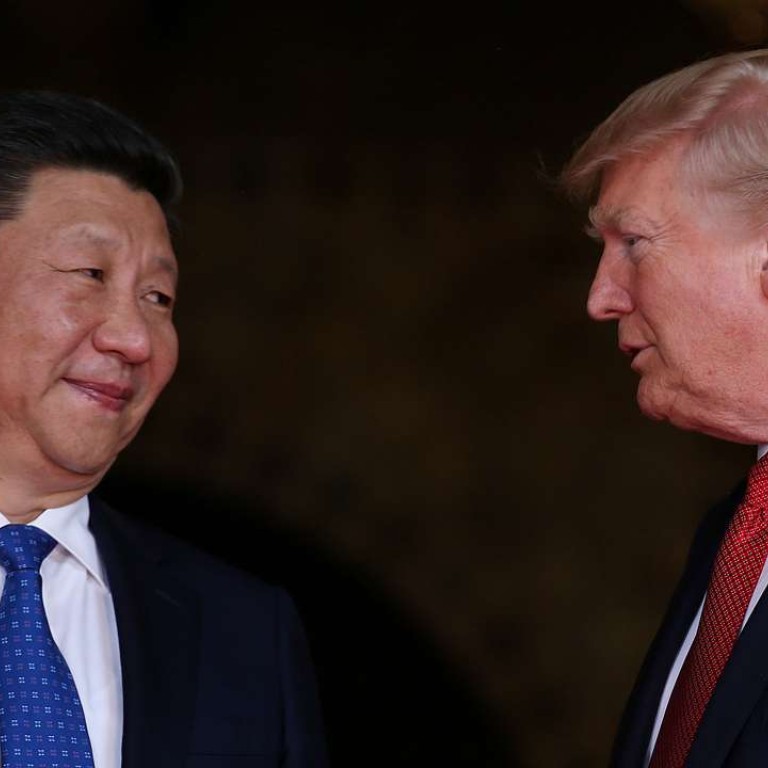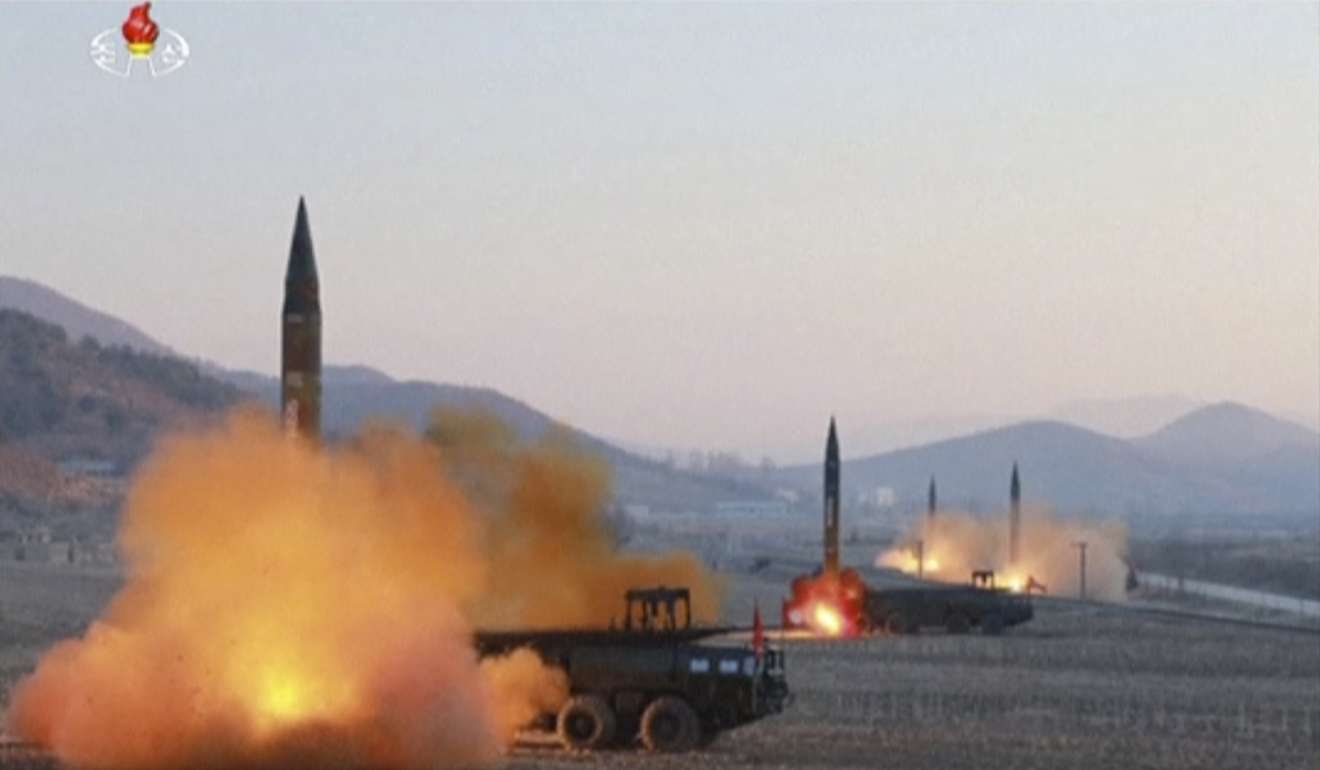
Did Trump-Xi call reveal subtle shift in China’s stance on North Korean nuclear crisis?
Xi Jinping voices opposition to Pyongyang’s nuclear programme, urges US to show restraint, but leaves out usual statement about solving issue ‘peacefully’
Chinese President Xi Jinping voiced Beijing’s strong opposition to Pyongyang’s nuclear brinkmanship on Monday while also urging the United States to show military restraint as tensions escalate on the Korean peninsula.
During a phone call with US President Donald Trump on Monday morning, Xi also agreed to maintain close contact with Washington over North Korea and to make every effort with the US and others to realise peace in the region, Xinhua reported.
The call was initiated by Trump as fears rise that Pyongyang is preparing further missile or nuclear tests, possibly on the 85th anniversary of the founding of the Korean People’s Army today, Bloomberg reported citing a White House official.

“China resolutely opposes any act that violates resolutions of the United Nations Security Council … and hopes that the parties concerned will exercise restraint and refrain from taking any action that will aggravate tensions on the peninsula,” Xi was quoted by Xinhua as saying. Xi said that with the international situation changing rapidly, it was necessary for China and the US to keep close contact and to exchange views on important issues of common concern, including North Korea, in a timely manner.
It was the second time in a month that Xi and Trump discussed the North Korean nuclear threat since their first face-to-face summit at the Mar-a-Lago resort in Florida, where Pyongyang’s accelerated weapons programmes also topped the agenda.
But in a shift from Beijing’s usual stand, Xi did not talk of the need to seek solutions to the nuclear tensions through talks and peaceful means.
Instead, Xi said all parties concerned must “shoulder their due responsibilities and meet each other halfway” to defuse tensions and achieve denuclearisation and stability on the peninsula, according to Xinhua.
The White House said Trump criticised North Korea’s continued belligerence, stressing that Pyongyang’s actions were destabilising the peninsula. The two leaders reaffirmed their commitment to strengthening coordination in achieving the denuclearisation of the peninsula.
Beijing has grown increasingly impatient with Pyongyang’s nuclear arms programmes, and ties between the two communist allies have deteriorated since China banned all coal imports from North Korea from February 26.
Analysts said the call was a warning to North Korean leader Kim Jong-un over programmes that Beijing deems as a growing threat to its security interests.
“Clearly we are seeing significant changes in China’s policy towards North Korea. Beijing will not tolerate another nuclear test by Pyongyang – it is a red line Beijing has drawn on the issue,” Sun Xingjie, a Korean affairs specialist at Jilin University, said.
The exchanges between Xi and Trump on North Korea signal Beijing and Washington might have edged closer towards reaching a much-talked-about grand bargain on thorny bilateral issues such as trade and currency.
“Pyongyang, which has posed serious threats to Beijing, is probably the only card China has to offer in dealing with Trump’s White House,” Sun said.
Huang Jing, from the National University of Singapore, said Trump’s phone call to Xi yet again highlighted Beijing’s key role in any effort to contain North Korea’s nuclear threat.
Beijing endorsed a Washington-proposed UN Security Council statement last week that condemned North Korea’s failed missile launch on April 16 and demanded that Pyongyang “immediately” cease further actions that violate resolutions. Pyongyang responded with a threat of “catastrophic consequences” if Beijing sided with Washington.
China’s top envoy on Korean peninsula affairs, Wu Dawei, has been snubbed in trying to arrange a visit to Pyongyang, according to South Korean media.

